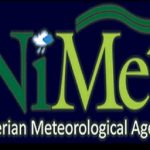
The Nigerian Meteorological Agency (NiMet) has projected early rainfall across most parts of the country in its 2025 Seasonal Climate Prediction (SCP).
The SCP themed, “The Role of Early Warnings towards a Climate Resilient Aviation Industry for Sustainable Socio-Economic Development,” was formally unveiled on Tuesday by the Minister of Aviation and Aerospace Development, Festus Keyamo, SAN.
According to NiMet’s forecast, while most parts of the country will experience significant rainfall events earlier than usual, the onset of rains will be delayed in the northern and central states, including Plateau, Kaduna, Niger, Benue, Nasarawa, Taraba, Adamawa, and Kwara.
In contrast, early rainfall is expected over the southern states of Delta, Bayelsa, Rivers, Anambra, Oyo, Ogun, Osun, Ondo, Lagos, Edo, Enugu, Imo, and Ebonyi. The rest of the country is expected to have a normal onset.
Similarly, the predicted end of the rainy season varies across regions. States such as Zamfara, Katsina, Kano, Kaduna, Jigawa, Plateau, Bauchi, Borno, Yobe, Adamawa, Taraba, Niger, Kwara, Kogi, the FCT, Ekiti, and Ondo are expected to see an early end to rainfall, while a delayed end is anticipated in Kaduna, Nasarawa, Benue, Lagos, Kwara, Taraba, Oyo, Ogun, Cross River, Delta, Akwa Ibom, Ebonyi, Anambra, and Enugu.
Speaking at the unveiling event in Abuja, Minister Keyamo emphasized the SCP’s significance as a critical tool for decision-making.
“This document offers insights into expected weather and climate patterns, enabling sectors such as agriculture, disaster risk management, health, marine operations, transport, and especially aviation, to plan effectively, mitigate risks, and seize opportunities,” he stated.
Permanent Secretary of the Ministry, Dr. Ibrahim Abubakar Kana, indicated the government’s commitment to ensuring widespread accessibility of climate information.
He noted that the SCP has been summarized for policymakers and translated into Hausa, Igbo, Yoruba, and Pidgin to reach grassroots communities.
NiMet’s Director General and CEO, Prof. Charles Anosike, highlighted the need for stakeholders to actively utilize and provide feedback on the SCP, describing climate predictions as “perishable” and requiring continuous evaluation and improvement.
He also appreciated the legislative support for NiMet, urging state governments to facilitate the downscaling of the SCP for maximum impact at the local level.












